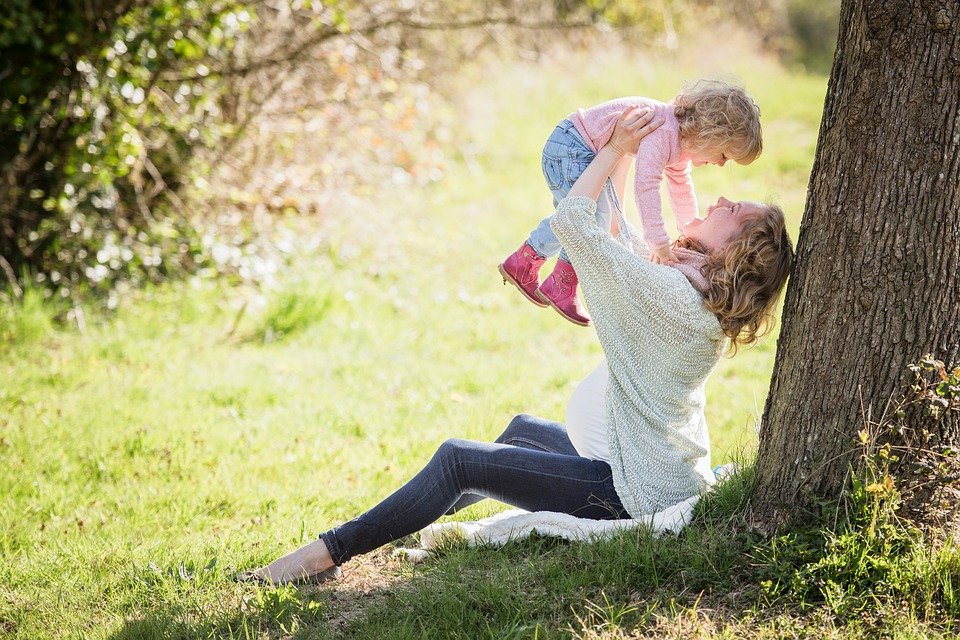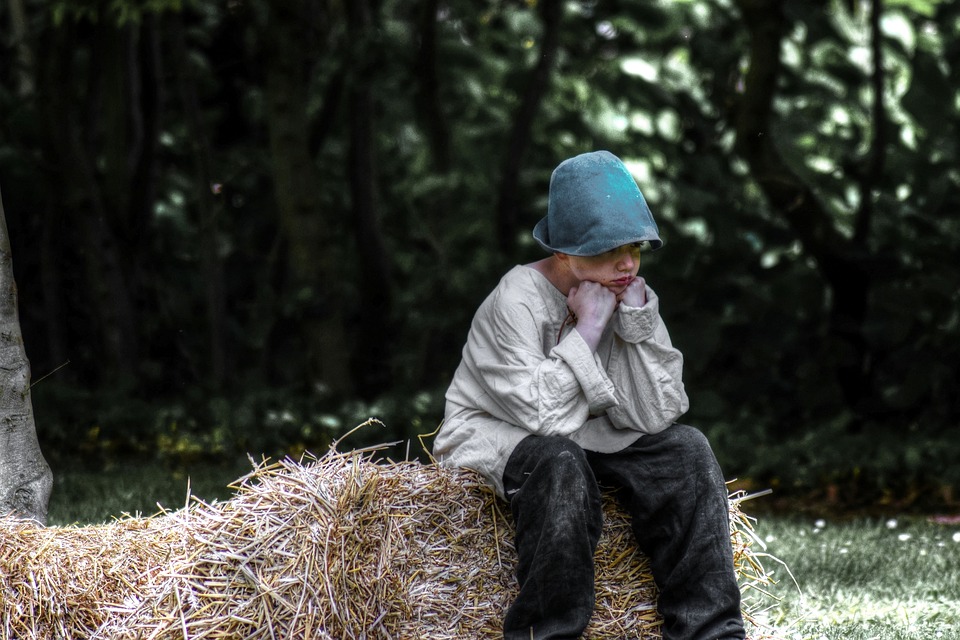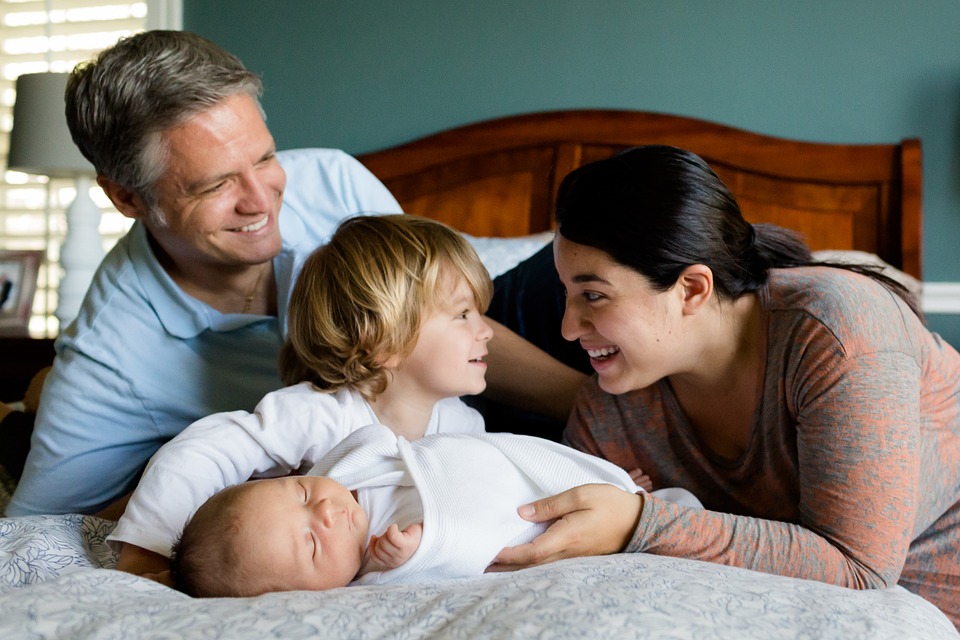Parents start to become anxious if their children do not conform to social norms because parents instinctively know that a child’s social survival is very important.
We might be ‘buying’ security for a child by getting the latest and trendiest object available, from designer labels to smartphones, in order to keep them within their social grouping. Then we start to abide by trends — we’re taught, and have it impressed upon us, that our children must have enough exercise, they must not watch too much TV, we must spend time with them, we must not let them eat the wrong thing, we must not let them watch the wrong thing, we must watch for health alerts and so on. Some of these demands are real in certain measure, but are they the real goals of parenting a child or are they just small stops on the way to something much bigger?
My conclusion is that they are secondary goals and that we are not paying enough attention to the primary goals of childhood. The outcome is that parents are very anxious about getting their child the ‘right thing’ rather than attending to the ‘right state of mind’. Are you the kind of parent who gets everything for your child and yet feels dismayed when they still do not appear to be happy? What truly makes children feel secure from the inside out? Once you have that information you can decide for yourself where you think your parenting might need to develop or where you might need to get help if necessary. You will, of course, continue to help your child conform to social norms and trends, but you will do this from a more secure position knowing that you have attended to the real priorities. You will have more choice about the other things and so will your children.

Psychological security
The thing that children want to feel most in life is that their parents feel secure and safe when they are with them and that this feeling then transfers to them. This is called a ‘felt sense’ and is also known as psychological security. With a felt sense of security, a child will have a pervasive feeling that their world is going to be held together and managed, in a fashion that keeps them safe and well, and that they can get on with the task of exploring life and relationships. This is what your children really want from you. So many of the children I have met in mental health services are mildly to moderately troubled because they feel they have had no psychological anchor onto which they can hold during their episode of difficulty.
The psychological capabilities of children who live with a felt sense of security might include the following:
They will feel that the world is a good enough place to be
Children show us that they feel safe when they can explore their environment and get on with learning. This overriding sense that it’s good to be alive is the richest of human resources, and it is a great achievement if we can raise children who wake each morning with the felt sense that today will be a great day because there are people on whom they can rely.

Children show us that they feel safe when they can explore their environment and get on with learning.
They will be able to distinguish positive from negative
Children who have a felt sense of security will feel safe enough to comment on their world and evaluate it in a realistic way. They will be able to evaluate their parents’ state of mind as well as comment on their own, and will be able to say things like ‘My dad’s not very good at mending the car so he couldn’t fix it and we were late for school’, and express frustration and disappointment about this. At the same time, the same child would be able to look at what their father gets right — ‘He helps me with my homework.’ They will be able to comment, ‘Mum is a bit upset today; that makes me feel sad too, but she says she will feel better soon.’
This kind of emotional literacy relating to good and bad gives a child a way to describe their experience and help others understand them. The child feels that their conversation is worthy of attention and they will bother to make a narrative about life because life is full of good and bad things that are interesting.
Children being emotional is to be expected and respected.
They will label and express emotions
Essentially, our emotions help us to understand where we are inside ourselves and there are plenty of reasons why we should not ignore these communications. Children being emotional is to be expected and respected, and is worthy of our attention. A child being emotional is as natural as a puppy biting your hand, because that is instinctive — the puppy is not being naughty, it is just behaving instinctively.
They will feel accepted
A sense of acceptance is big currency in life. A sense of acceptance and belonging in our primary family of care (or adopted or substitute family or care group) is the deepest gift on offer in this lifetime and nothing can replace the sense of wellbeing or contentment that this will give to children.

They will have a coherent self
Coherence is an important word when we are thinking about the care of children. You don’t have to be perfect as a parent, but you do have to try to be as coherent and as organised, functional and meaningful in your behaviours as you can be. The more children have the sense that their small emerging mind and self has the support and attention they need, the more they will enjoy being alive with an inherent sense that all chaos can be restored.
They will be alert to information about relationships
Secure children feel a sense of conviction that it matters to notice others and what they might be thinking, and, like anything to which we give our attention, the more we give our focus to it the more we are likely to become an expert at it. The more adept we are at reading social cues through reading people’s faces and body language, the more we are likely to get social cues correct and respond in the right way.
They will be angry and frustrated at times but will be able to manage this and rely on you
If you are available to deal with your child’s issues as they arise, it is highly likely that by the time they are adults they will have absorbed the tendency to deal with issues more effectively, having received all of your help.

They will be angry and frustrated at times.
In conclusion
Children are primed and programmed to demand more and more from us and you might need help to identify the organic needs of the child that must be met if they are to feel secure from the inside. It is safe to say no to a child if they ask for the latest thing that they feel they need, but it is not safe to take your eye off their need for you to protect them and prioritise their care. As we have seen, secure kids express emotions, talk about negative as well as positive experiences and feel they have the right to comment on their lives. They will have problems and they will bring you those problems if they are secure. There is no way out of having problems in life when you are a child. Your real hope lies in a thoughtful parent who is sensitive to what is worrying you, who takes your issues seriously and realises that what you really need is them and their mind working for you.
Finally
» What your child really needs is you and your attention. There is nothing on this planet you can buy that will replace that.
» Emotions are beautiful aspects of our humanity that keep us informed about the state of our children and ourselves.
» If you put effort into anything, put it into helping your child feel loved, safe and accepted.
» Help your child resolve negative emotions. It is a fantastic way to care for their mental health and make them feel secure. It could be said to be the first building block of good mental health.
» Take note of how important the quality of the relationship is with your child. This is demonstrated by being there for them to deal with the small issues they face on a daily basis.




